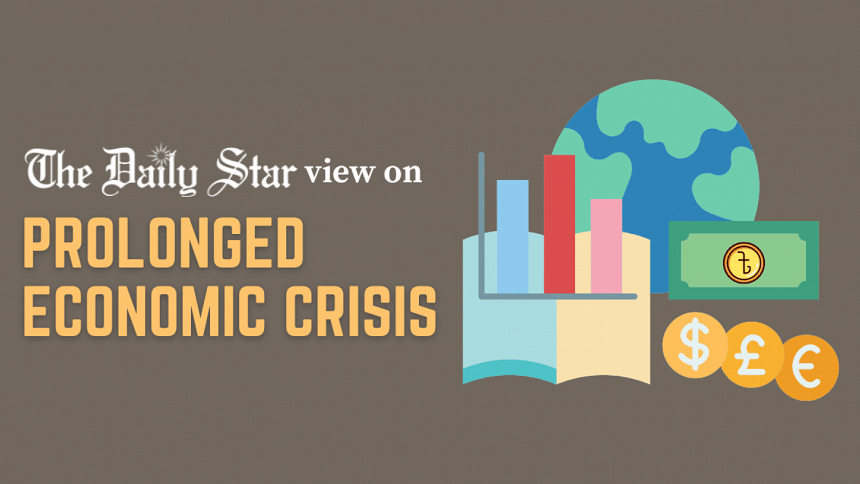Quick fixes will not help end Bangladesh's economic crisis

Amid the global economic turbulence caused largely by the war in Ukraine, Bangladesh is also going through a crisis which, economists say, is not going to go away anytime soon. This is because the country is also having to deal with homegrown wounds that have been allowed to fester, increasing its vulnerability to global economic shocks.
These include dwindling foreign exchange reserves, soaring inflation, energy crisis, weak governance in the financial sector, steadily falling remittances, increasing import payments with the highest trade deficit in five decades, and the addition of over 30 million "new poor" (due to the pandemic and continuous price hikes of essentials). Experts have also pointed out the multiple financial leakages due to mis-governance and corruption in many areas. The end result is: ordinary people, especially the poor and those with low and fixed incomes, are having to bear the brunt of the crisis.
So far, the government's crisis management policy consisted of quick fixes, which will not be enough to address the deluge of economic challenges ahead. It is, therefore, vital that it listens to the experts, who have recently offered short, midterm and long-term recommendations that can help keep the country afloat. For starters, they said, the government should immediately provide support to poor and lower-income households struggling with the soaring food prices. Borrowing from various international organisations such as Islamic Development Bank, IMF and World Bank may help to boost foreign exchange reserves.
Also, the central bank has to rigorously monitor import payments so that non-essential imports can be stopped. A more efficient, independent role of the central bank is crucial to prevent money laundering through trade under-invoicing and over-invoicing. Indulging loan defaulters through loan rescheduling can no longer be allowed. Ensuring good governance in the financial institutions is vital.
The biggest mess, however, that the government must get itself out of is the energy crisis, which is really a grave that it dug for itself. This could have been largely avoided if not for the bizarre decision to prolong the costly maintenance of quick rental plants even when they were sitting idle, depleting our foreign exchange reserves as a result. Meanwhile, despite evidence of substantial gas reserves, the government has not gone for exploration of gas; instead, it spent huge amounts of foreign exchange in importing liquefied natural gas (LNG). The government must see the error of its ways, and start exploring gas.
The ongoing austerity measures, including countrywide load shedding, may have to be continued, but these cannot continue indefinitely. Apart from making people suffer, they will also affect production and supply, thereby increasing inflationary pressures. It is, therefore, essential that the government engages with experts to find more durable solutions.

 For all latest news, follow The Daily Star's Google News channel.
For all latest news, follow The Daily Star's Google News channel. 





Comments